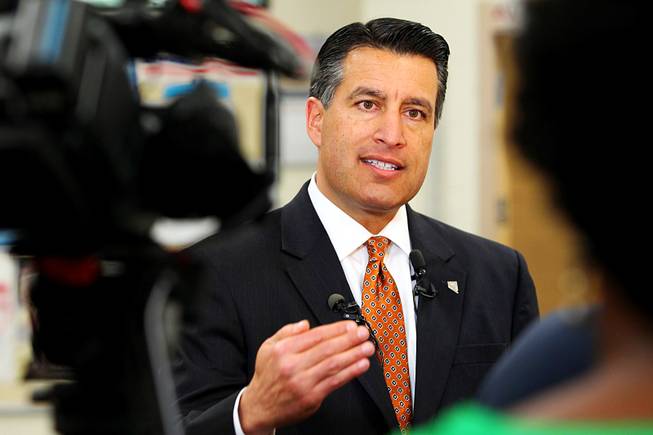
Gov. Brian Sandoval speaks to the media Thursday, March 22, 2012, while looking at aviation education in Southern Nevada.
Sunday, Nov. 25, 2012 | 2 a.m.
Sun coverage
Tired of presidential politics? Get over it: As many as 15 prominent Republicans are privately contemplating 2016 campaigns for the presidency — and the most serious and ambitious of the bunch are plunging in, some quite publicly.
Don’t expect them to officially announce or even officially decide for many months. But Sen. Marco Rubio of Florida, Louisiana Gov. Bobby Jindal and House Budget Chairman Paul Ryan of Wisconsin are doing nothing to disguise their presidential ambitions.
Jindal, a Rhodes scholar and the new chairman of the Republican Governors Association, is making a very public case for a more intellectual approach to conservatism, accusing the GOP of being, in his words, “the stupid party.”
He offered a similar premeditated critique to reporters at the RGA, on Fox and in an opinion piece.
Rubio and Ryan, both arguably better positioned than Jindal, also are competing for the mantle of the high-energy, forward-thinking conservative. Politico has learned both will unveil new policy plans at an awards dinner of the Jack Kemp Foundation in early December: Ryan will begin a new push on a more modern approach to alleviating poverty, focused on education; Rubio will lift the curtain on an economic empowerment message, heavy on college affordability and workforce training.
That upcoming duet is one of the clearest signs that this presidential race is beginning as early as any in history.
Not to be outdone, Sen. Rand Paul of Kentucky, son of Rep. Ron Paul of Texas, and heir to his father’s libertarian following, is on the record exploring a run that will focus heavily on returning power to the states. In a post-election interview, Rand Paul said he wants to find common ground with liberal Democrats on softer marijuana laws and help create an eventual pathway to citizenship for undocumented immigrants.
These 40-something rising stars are hardly alone. New Jersey Gov. Chris Christie, despite party grumbling about his embrace of President Barack Obama during Hurricane Sandy, has made plain that he plans to make the case that he has cracked the code on winning on Democratic turf. Christie has the perfect chance to take the temperature of big donors as he raises money for his 2013 re-election race for governor. He will do just that, friends say.
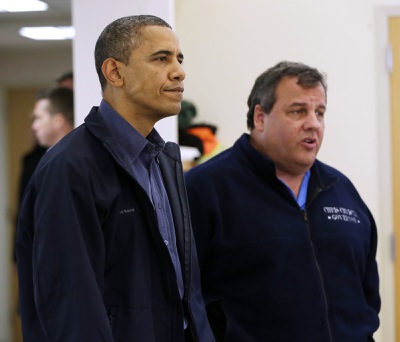
President Barack Obama and New Jersey Gov. Chris Christie visit the Brigantine Beach Community Center to meet with local residents, Wednesday, Oct. 31, 2012, in Brigantine, NJ. Obama traveled to Atlantic Coast to see first-hand the relief efforts after Superstorm Sandy damage the Atlantic Coast. (AP Photo/Pablo Martinez Monsivais)
Politico also has learned that Rick Santorum is telling friends he wants to run again. Texas Gov. Rick Perry has said publicly that he might, too, and has begun talking to donors and other top supporters like he means it. And Jeb Bush, the former Florida governor with strong credentials on education and winning back Hispanics, has told advisers he will sit back to see how things unfold over the next year before deciding whether to finally give it a go.
Jeb Bush Jr., the former governor’s younger son, said Tuesday when asked on CNN’s “Starting Point” whether his father would run: “I certainly hope so.”
“You have this young crop of attractive, successful, proven problem-solvers,” former Mississippi Gov. Haley Barbour said. “Old guys like me have to get out of the way.”
Barbour said the way to stand out in the field will be to help with the party’s 2013 and 2014 races.
“We’re not going to wait till 2016 to set a strong new course,” he said.
This all might seem premature — and a possible big-time distraction for a party that lost the presidency and Senate and House seats this time around. But top Republican officials are encouraging the never-ending presidential campaign in hopes of creating influential national voices beyond Fox News and Rush Limbaugh.
“On every conference call, the message is the same,” one top official said. “We’re going to push out our new generation of leadership. We’re not going to sit back and let the extreme voices define what it means to be a conservative.”
Republicans still are haunted by the post-election chaos of 2008, when, with John McCain diminished by defeat and few clear future leaders with national juice on the scene, Limbaugh, Glenn Beck and Sarah Palin filled the void — and dominated news coverage. This time feels different: Unlike 2008, when Republicans chalked up their defeat to a bad GOP ticket in a terrible post-Bush environment for the party, many of the most influential voices are calling for substantial rethinking of the conservative approach to politics. They are reckoning with demographic trends that favor Democrats — as well as with exit polling suggesting the assumption this is a center-right country might be wrong, or was at least wrong on Nov. 6, when a center-left electorate showed up.
The danger, of course, is that Republicans get pulled into a bitter fight over the direction of the party, especially as more traditional and hard-edged conservatives jump into the race.
Republican sources said Rep. Michele Bachmann of Minnesota might want to fill the void on the religious right now and that Mike Pence, who just won the gubernatorial race in Indiana, has expressed interest in running, too.
Wisconsin Gov. Scott Walker, who unlike Ryan won statewide in a state Obama won twice, also harbors national ambitions and remains a favorite of Tea Party conservatives.
For now, most of the media attention is on Republicans who can help the party adapt to the changing demographics, weeks after the party lost blacks by 90 points, Asian-Americans by 50 points, Hispanics by more than 40 points and women by just over 10. This will put a lot of emphasis on the small minority of minority leaders inside the GOP. Condoleezza Rice, one of the few stars of this summer’s Republican convention in Tampa, has told Republicans she will continue speaking out on the future of the party, which will fuel 2016 speculation. A Rice run strikes many Republicans as unlikely, given her previous resistance.
Others known to be openly thinking about a run include New Hampshire Sen. Kelly Ayotte; two Western governors who are Hispanic, Susana Martinez of New Mexico and Brian Sandoval of Nevada; and South Carolina Gov. Nikki Haley.
Finally, there are the elected officials who are perpetually looking for something bigger: Sens. John Thune of South Dakota and Rob Portman of Ohio; Virginia Gov. Bob McDonnell, whose term ends in 2014; and Ohio Gov. John Kasich, who like so many others on this list has made his ambitions known in private conversations with donors and activists.
Republican National Committee Chairman Reince Priebus said in an email to Politico: “While the RNC engages in a serious post-election analysis of what worked well and what needs to be improved upon, one area that gives me great optimism is the caliber and quantity of potential 2016 candidates on the GOP side. The top names on the GOP side are talking about serious solutions and reforms to the major issues facing the country, which will put the Republican field in a solid position.”
With all this activity, Jindal, Rubio and Ryan know there is little time to waste in trying to position themselves to be “the one,” the candidate who can lead the party back with conservative thinking calibrated to appeal to a changing America. Jindal has been the most aggressive, hitting his party hard in his post-election interview with Politico, posting an op-ed on CNN and offering a sharp critique of his party during last week’s RGA meetings. In the interview, Jindal urged an end to “dumbed-down conservatism.”
“We need to stop being simplistic. ... We’ve got to make sure that we are not the party of big business, big banks, big Wall Street bailouts, big corporate loopholes, big anything,” he said.
Ryan allies believe that although his vice presidential run ended in a disappointing rout (with Obama winning his home state of Wisconsin), he has more celebrity, credibility and clout after the race. With his expertise and power in the upcoming budget fights, Ryan will be a central figure in the policy and political debates of 2013.
Rubio plays up his working-class roots and values as part of an appeal to voters making $30,000 to $50,000 a year — a group Romney lost badly but with whom Republicans used to be very competitive. That, combined with his connection with Hispanic voters, would make him a bit of an anti-Romney — the one card nearly every one of these candidates will try to play, however subtly. Rubio planted the flag in Iowa last weekend, setting a record at a Republican fundraising event. Look for him to flex his muscles in coming months in the other early states: New Hampshire, South Carolina and Nevada.
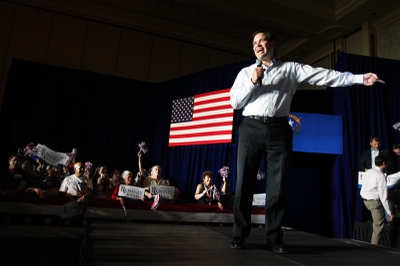
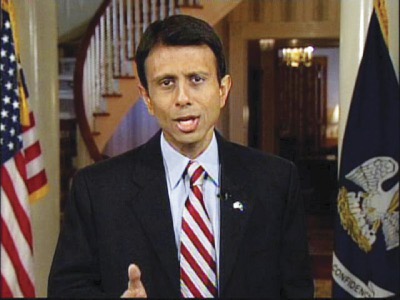
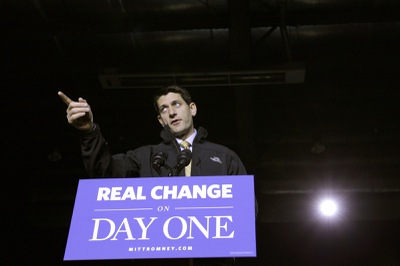
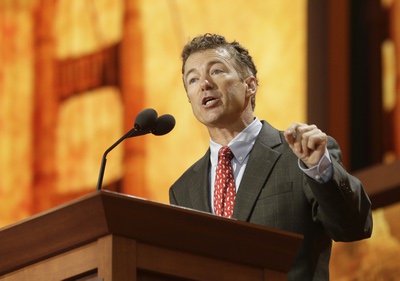
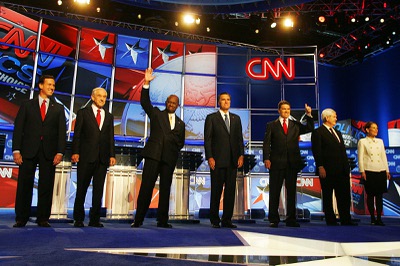
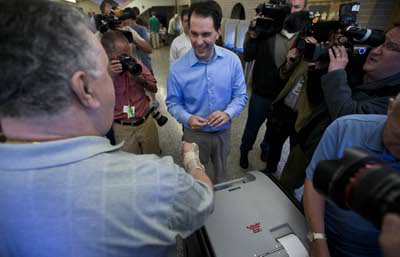
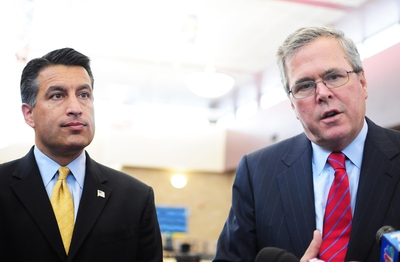
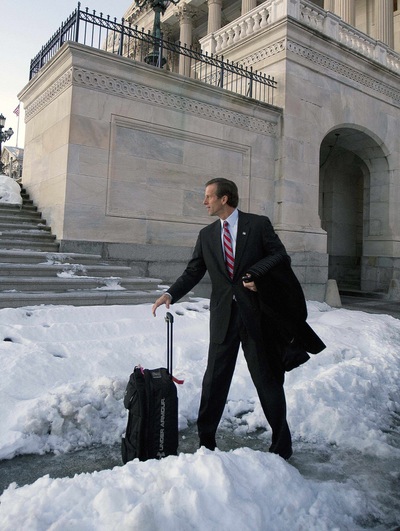

Join the Discussion:
Check this out for a full explanation of our conversion to the LiveFyre commenting system and instructions on how to sign up for an account.
Full comments policy